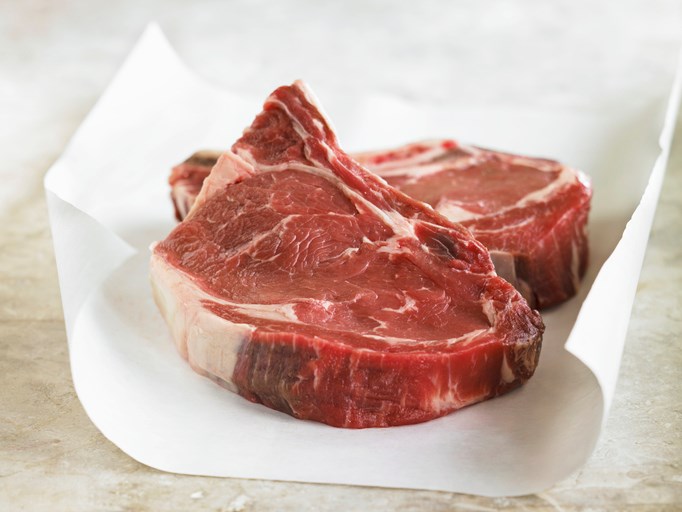Update. Oct. 28, 2021
A North Vancouver meat packer has been fined $150,000 for inadvertently selling non-organic beef as organic.
The fine, which was agreed upon by the federal Crown and Blue Goose Cattle Co. at a sentencing hearing in July, was handed down in North Vancouver provincial court on Oct. 27, court records show.
Below is the original story from the July hearing, originally published July 30, 2021.
A North Vancouver beef distributor is facing a $150,000 fine for selling beef as certified organic despite the cattle having been treated with hormones and antibiotics and fed non-organic food.
Blue Goose Cattle Co., which operates a warehouse and offices in Norgate, pleaded guilty in North Vancouver provincial court Wednesday to one violation of the federal Food and Drugs Act.
In 2019, the Canadian Food Inspection Agency executed search warrants at Blue Goose’s North Vancouver warehouse and offices and their slaughterhouse near Vernon to seize records, according to an agreed statement of facts read out in court. An audit of the “kill sheets” and cattle tags found 36 cows that had been purchased from a dealer in Alberta had unintentionally been mixed in with their organic herd. Of those, 18 were slaughtered and sold as “certified organic” to butcher shops, grocery stores and other distributors in B.C., the court heard. The purchasers of the beef were informed later of the error, although they were not named in court.
Under the Act, it is illegal to sell or advertise food “in a manner that was false, misleading or deceptive and was likely to cause an erroneous impression regarding its character, value, quantity, composition, merit or safety.”
Crown prosecutor Charles Hough conceded it was an inadvertent mistake caused by poor record keeping but, he said, the government takes food regulation seriously.
As of 2020, Canada had about 7,500 organic food producers, Hough said, and Canadians spent about $7 billion on organic food, a small percentage of the total but a number that grows every year. In 2019, the country exported about $500 million in organic products.
“The organic industry is important to Canada's economy. It is important to Canadians,” he said. “If it turns out that a party involved in the organic industry isn't doing what they should be doing, and they're caught, it is important from a deterrence and denunciation perspective that there be sufficient penalty, so as to uphold the integrity of the system and send a message that there is going to be a sanction.”
The company has had organic certification since 2004 but they won’t be seeking it for the next year, Hough said. Instead, the will be shifting the focus of their business to the sale of live cattle.
Blue Goose lawyer Rebecca Robb said the error was a costly one, even without a fine. Because of rising market prices for live cattle in the United States and favourable currency exchange rates, the company intended to simply buy the non-organic cows and export them. That would have been more lucrative than slaughtering them and selling them as organic here, Robb said.
The company has an otherwise clean regulatory record, Robb noted, and pleading guilty will harm their reputation. And, she stressed, there was never a risk the public.
“(This) is not a case dealing with a deliberate violation of Food and Drugs Act. There wasn't a profit motive behind the violation or a material benefit. The company has already taken the steps to address the root cause that led to the violation,” she said.
After six months of negotiations, Blue Goose and the federal Crown reached an agreement for the company to plead guilty and pay a fine of $150,000. The fine amounts to about two-and-a-half times the value of the beef that was sold as organic, according to Blue Goose.
“This is not a fine that is subject to the criticism of just the cost of doing business, or a mere licence fee for illegal activity,” Robb said.
Judge Joanne Challenger told Blue Goose and the Crown’s lawyers she would deliver her sentence likely near the end of October, but she specified she would not deviate from the $150,000 fine the two sides had agreed upon.



